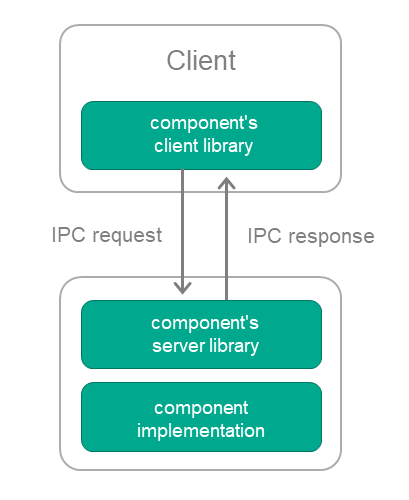IPC transport
To implement entity interactions, we need transport code, which is responsible for properly creating, packing, sending, unpacking, and dispatching IPC messages. Developing solutions for KasperskyOS does not require writing your own transport code. Instead, you can use special tools and libraries included in KasperskyOS Community Edition.
Transport code for developed components
Someone developing new components for KasperskyOS can generate transport code based on static definitions of the components. To achieve this, KasperskyOS Community Edition includes the NK compiler. The NK compiler lets you generate transport methods and types for use by both clients and servers.
Transport code for included components
The functionality of most components included in KasperskyOS Community Edition may be used in a solution both locally (through static linking with the developed code) and via IPC.
The following transport libraries are used to separate a component into a server entity and use it via IPC:
- The component's client library converts local calls into IPC requests to the driver entity.
- The component's server library receives IPC requests to the driver entity and converts them into local calls.
To use a component via IPC, it's enough to link its implementation to the server library, and to link the client entity to the client library.

The client library interface does not differ from the interface of the component itself. This means that it is unnecessary to change the code of the client entity in order to switch to using a component via IPC (instead of static linking).
For more details, refer to IPC and transport.